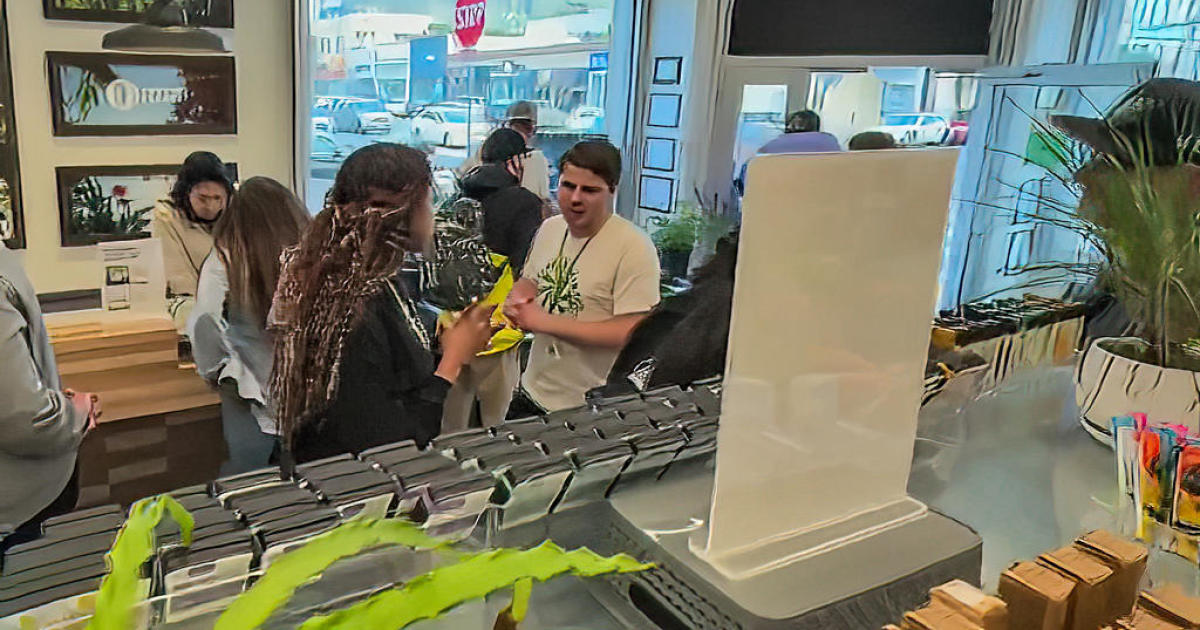All Eyes Focuses On Chinese Stock Market
SAN FRANCISCO (CBS-SF) -- The Dow is on pace to lose 1,000 points this week as Wall Street sinks under the weight of China, with the world's second largest economy showing increasing signs of weakness.
Here's what you need to know about China, and why it matters so much for the U-S, according to KCBS Business Editor Jason Brooks.
China's currency was again allowed to devalue against the dollar, a sign that Beijing may not be fully forthcoming about the state of the country's economy, as countries tend to lower their currencies as a means of boosting exports, and China's manufacturers have been dealing with weaker demand for the past year.
Something that could hammer markets on Friday is the expiration of a ban on big stakeholders from selling their shares in Chinese firms.
Analysts say smaller investors may have been heading to the exit before the bigger players make that move.
And worries over China's economy is sending oil even lower, down to a 12-year low, and that's wiping out energy-related stocks.
Even though China's economy is still growing at a rate that would be the envy of advanced economies, it's only about two-thirds of what it was five years ago and is expected to slow further.
A slowdown in China is seen as a threat by many investors because the country has been the main engine of global economic growth for years, particularly during the depths of the Great Recession.
U.S. and European companies have rushed to sell cars and a multitude of other products to China's fast-growing middle class. China accounted for more than half of Apple's revenue growth in the fiscal year that ended in September.
Also, the country's huge manufacturing sector is a major buyer of machinery and basic materials such as copper and oil, often from countries such as Brazil and Russia.
For companies looking to export to China, the devaluation of the yuan is also bad news: It makes their products more expensive when brought ashore, putting them at a competitive disadvantage.
All these factors could drag down profits at corporations all over the world.
Another problem: Investors don't trust official economic figures from the Chinese government. China says its economy is growing at close to 7 percent, but many investors think that is inflated. After all, the country's official unemployment rate has been basically unchanged for years.
Many investors look instead at how much electricity is being produced and other statistics they consider more reliable. Mutual fund managers say China's actual economic growth could be closer to 4 percent.
"Chinese growth is clearly slowing, but it is not plummeting," said Ben Mandel, a strategist with JPMorgan Funds.
The slowdown has already hit corporate profits. American heavy-equipment maker Caterpillar is seeing sales weakening not only in China but also in Brazil and other countries that dig out the commodities China used to be so hungry for.
Still, Japan and Europe do a lot more business in China than the U.S. does, and as a result, they face higher risks.
"It will not translate into a mortal threat to U.S. economic growth," Mandel said. "When we talk developed markets, Japan is the most heavily exposed to China, with Europe being in the middle, and last is the U.S."
That's one reason European and Japanese stock indexes have fallen even more than U.S. markets this week. China is a key market for German's BMW and Mercedes
Benz, for example, and Germany's DAX index is down 7.1 percent this week. Japan's Nikkei 225 index is down 6.7 percent.
After the market closed Thursday, Chinese regulators removed the recently installed circuit breakers, hoping that will allow markets to find their level.
But that may mean even more volatility in a year that has already had a lot.
"We're only seven days into 2016 and we've already had North Korea's nuclear test, Saudi Arabia and Iran cutting diplomatic relations and China devalue their currency," Kristina Hooper, head of investment strategies for the U.S. at Allianz Global Investors, said. "It's going to be a volatile, turbulent year, and investors need to be prepared for that."
TM and © Copyright 2016 CBS Radio Inc. and its relevant subsidiaries. CBS RADIO and EYE Logo TM and Copyright 2015 CBS Broadcasting Inc. Used under license. All Rights Reserved. This material may not be published, broadcast, rewritten. The Associated Press contributed to this report.



